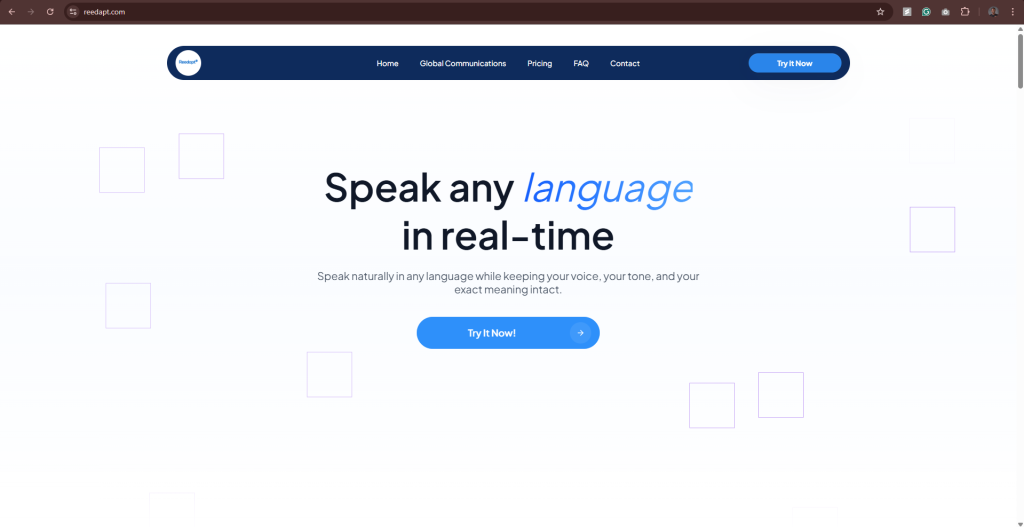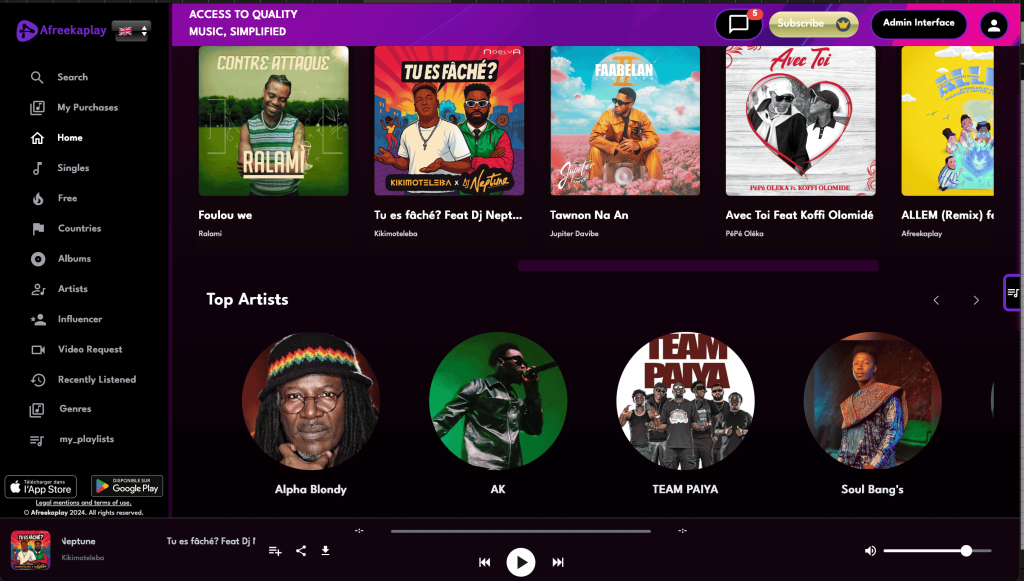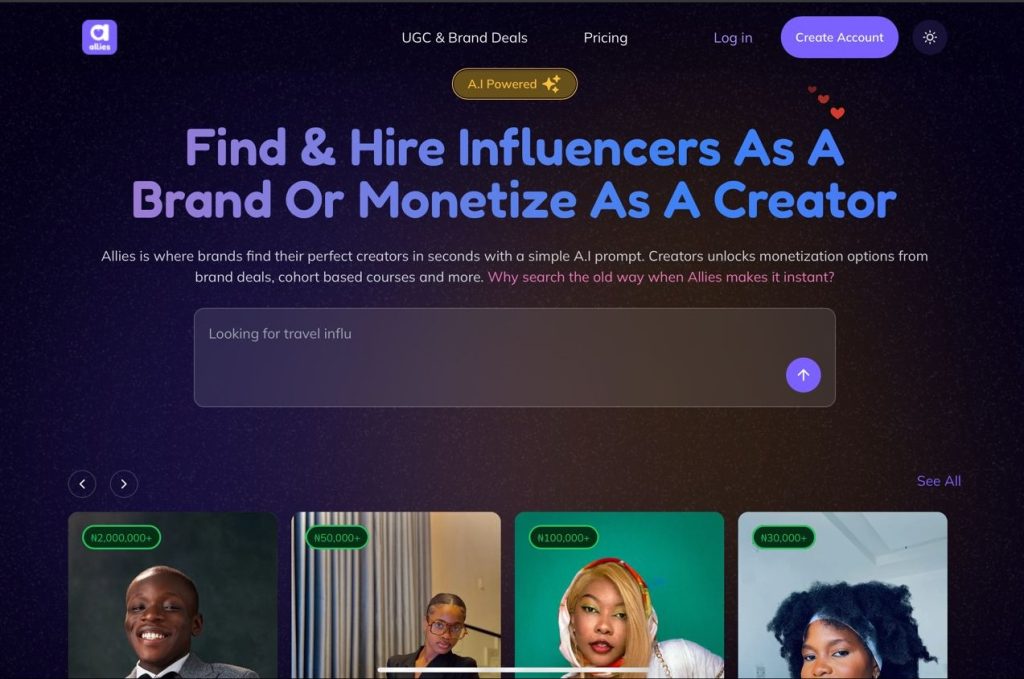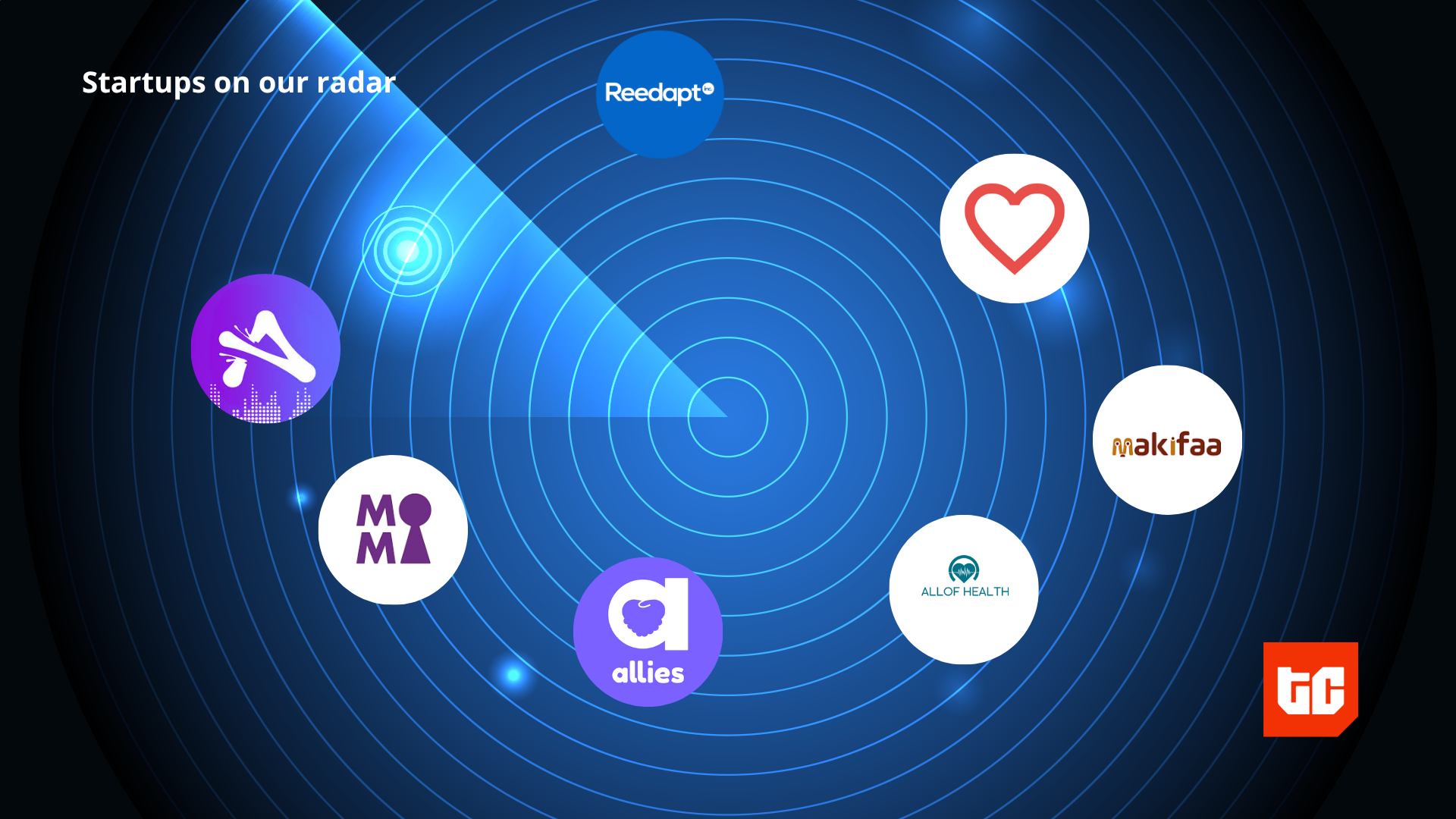Startups On Our Radar spotlights African startups solving African challenges with innovation. In our previous edition, we featured seven game-changing startups pioneering travel, creative economy, job hunting and mental health care. Expect the next dispatch on November 28, 2025.
This week, we explore seven African startups in the media, real estate, health, social networking and artificial intelligence sectors and why they should be on your watchlist. Let’s dive into it:
MortgageMarket wants to simplify homeownership with one mortgage application for all banks (Proptech, South Africa)
MortgageMarket was built to solve the inefficiencies and lack of transparency in South Africa’s home loan sector. The startup launched in 2020, after Tim Akinnusi, a former banking executive at two major South African banks, recognised the difficulty that buyers faced in comparing mortgage offers. Before MortgageMarket, applicants had to visit each bank individually or rely on bond consultants who often did not offer them affordable housing options because the lower commissions were not incentivising enough.
The startup’s web-based platform allows users to complete a single application in approximately 30 minutes. Users fill out a form and upload relevant documents which are submitted simultaneously to all major lending banks, including ABSA, First National Bank (FNB), Nedbank, and Standard Bank. Within 24 to 48 hours, users receive real-time updates that include loan offers from each bank, along with a side-by-side comparison showing rates and loan terms.
Before applying, the platform offers a pre-approval tool that calculates affordability based on income and expenses. The platform is free for users and generates revenue through a flat commission paid by the banks for every finalised deal. Since its launch, MortgageMarket, available in South Africa and Namibia, claims to have originated over R5.7 billion ($330 million) in home loans and processed over 50,000 users.
Why we’re watching: South Africa’s real estate market is expected to pass $1 trillion by 2029. MortgageMarket is rewiring an outdated mortgage pipeline that connects South Africa to this market. The startup distinguishes itself from traditional bond consultants by embedding financial products that address specific barriers to entry. MortgageMarket’s value lies in collapsing weeks of paperwork into a single digital touchpoint. The platform also offers a feature it calls gap funding, a short-term loan feature that helps buyers cover deposits or transfer duties when bank approvals fall short of the full purchase price.

Reedapt is giving African voices a global stage with real-time AI language interpretation (AI, Nigeria)
Reedapt is an AI-powered, multilingual communication layer that combines dubbing, real-time speech interpretation, and culturally aware language intelligence into a single platform. Founders Owoade Apotierioluwa, Nnaji Maryann, Mac-asore David, and Ibiang Emmanuel launched the startup after noticing that existing tools, such as ElevenLabs, failed to accurately dub African voices, resulting in messages being lost in translation. That experience, combined with the discovery of accent bias in existing AI tools, pushed him to develop a system designed for African contexts and accents.
The platform features a dual-function tool, with its first product operating as a dubbing software that can translate content across major international languages into Nigerian languages such as Yoruba and Hausa. Users can convert English content to Yoruba, Yoruba to Chinese, or Spanish to Hausa. In addition to dubbing, the startup has developed a real-time interpretation service that allows users to be heard in multiple languages simultaneously while retaining their original voice.
The system preserves the speaker’s voice through voice cloning and applies contextual cues to avoid mistranslation of culturally specific phrases. Owoade explains that the contextual intelligence Reedapt uses for translation recognises cultural nuances and idioms, ensuring that homonyms within the language are accurately translated. Reedapt currently serves 200 active users, ranging from individual clients to organisations. It generates revenue through dubbing services and user credits for its real-time tools.
Why we’re watching: While global tools like Google Meet and other dubbing systems support major languages, they often lack data that considers African dialects. Although Google Meet introduced real-time speech translation in May, the rollout was initially limited to English and Spanish, leaving African languages underserved. Reedapt differentiates itself by prioritising these unheard voices and local dialects, and claims to have beaten Google in a recent real-time interpretation test. The startup plans to support 1,800 languages in the next five years. It aims to be the infrastructure that enables Nollywood and African creators to export their content globally without compromising their cultural identity.

Afreekaplay wants Africans to stream music locally with mobile money (Music, Côte d’Ivoire)
Founded by Mamadou Bah, Ibrahima Bah, and Kebo Okioh, Afreekaplay was created to solve inaccessibility problems for Africans looking to pay for global streaming services. Platforms like Spotify and Apple Music typically require credit cards for payment. Fans who rely on mobile money and have no access to credit cards are often unable to subscribe to these services. Afreekaplay, headquartered in Côte d’Ivoire and with a presence in Guinea and Benin, launched a beta in November 2021 as a paid download platform that allows users to buy songs and albums legally using mobile money.
The platform offers a 100% African catalogue and distinguishes itself by integrating mobile money payments across more than 13 Francophone countries. Afreekaplay operates as both a web and mobile app where users can either purchase music or stream via subscription. Instead of pirating songs from YouTube converters, users can buy songs directly by entering their mobile number, selecting their operator, confirming with a PIN, and receiving the track instantly, sometimes even with permission from the artist to download the files to their laptop.
To ensure sustainable billing for streaming, Afreekaplay has secured partnerships with major telecom operators, including MTN in Côte d’Ivoire, Orange in Guinea, and Yas in Togo, to automate monthly deductions from users’ mobile wallets. The service costs approximately $3 per month for streaming access or around $10 to purchase a full album. Afreekaplay operates on a revenue-share model, paying artists up to 70% of income generated from purchases and subscriptions. Since its beta launch in November 2021, the startup has onboarded over 500 independent artists and recently won the D4D Hub Creative Award at Moonshot 2025.
Why we’re watching: Africa’s digital music market is expected to pass $500 million by 2030. In this market, Afreekaplay is positioning itself as a pan-African alternative to global streaming platforms, built entirely around local realities. The platform offers country-level filtering, ensuring that local underground artists gain visibility rather than being buried in global algorithms, a discovery layer that Spotify and Apple Music do not provide. The startup is expanding its creator economy tools and plans to launch a video-on-demand feature that allows users to pay artists for personalised video shoutouts in January 2026.

Makifaa is providing authentic African stock images (Media, Togo)
Makifaa is a visual content infrastructure built to solve the scarcity of authentic African imagery in marketing. Co-founded by Doris Django, Jean François, and Charles Dzadu in 2023, the platform addresses a specific pain point where African brands spend money on campaigns but struggle to find stock photos that resonate with their audience, often encountering racially inaccurate results on global platforms like iStock or Pexels.
Makifaa solves this with a three-part content infrastructure, which includes a stock library with over 8,000 images shot by more than 300 photographers across Togo, Benin, Côte d’Ivoire, Senegal, and a growing Nigerian base. Users can search and download images, either by paying per image pack or by accessing free images listed by contributors. Photographers earn 40–60% on every paid download, and commissions rise as they stay active and upload more images.
It also has Samba AI, an AI image-generating tool built with open-source models. Users enter prompts to instantly generate African-themed images. A $9 subscription unlocks more image generations and provides access to images generated by other users. . Makifaa also offers custom content production for corporates. Brands submit briefs with campaign-specific themes, and Makifaa assembles local photographers to shoot exclusive photos or videos for them. These assets remain private to the client and follow separate contracts.
Makifaa currently serves nearly 2,000 users and has a personalised dashboard for contributors to track sales and withdraw earnings. Makifa’s next goals include onboarding more African photographers and hitting its first 1 million images on the platform.
Why we’re watching: Globally, the stock images market is expected to reach $9.98 billion by 2030. Makifaa is tapping into this market by directly tackling the authenticity gap in African visual content and AI-generated imagery with exclusive corporate shoots in one place. As more African brands prioritise local representation, Makifaa is positioning itself as a scalable source of region-specific content.

Allof Health is unifying patients’ fragmented medical records with blockchain (Healthtech, Nigeria)
Allof Health was founded by Effiong David Etim and Alese Michael Toluwanito to address the gap in accessing personal medical records. Co-founder Effiong recounted needing his Lagos medical file during COVID-19 while quarantined in Calabar, which took weeks to arrive. Other patients face similar delays. To solve this issue of health data trapped in centralised hospital silos, the startup built a decentralised platform that allows patients to own, retrieve, and share their medical history instantly, regardless of location. Allof Health created real-time patient records using a blockchain-powered system.
When a user signs up, the platform automatically generates a blockchain account and a unique patient identity. The platform functions like a digital wallet for health records. Instead of storing sensitive patient data directly on the public blockchain (it would be expensive and publicly visible), Allof Health encrypts the records and stores them on the InterPlanetary File System (IPFS). Only the encryption keys and smart contracts, which manage permissions and consent, are stored on the blockchain.
When a patient visits a doctor, they grant temporary access to their records with their unique ID. The doctor can then view and append notes that are then updated across the decentralised network and returned to the patient until they choose to share the records again. The platform also has a telemedicine feature that allows users to book consultations with private-practice doctors or partner hospitals.
Users are incentivised to use the platform through the Allof Health token, which is a crypto reward earned for sharing data or booking consultations. While data sharing is free, the startup generates revenue through a 15% commission on telemedicine consultations booked on the platform. Since its public launch in September 2025, Allof Health has onboarded over 1,000 users and 12 healthcare providers, and has generated over ₦1 million in revenue.
Why we’re watching: Allof Health is tackling the lack of interoperability between African healthcare providers with a blockchain-powered framework designed for portability and consent-led sharing. This positions it differently from telemedicine startups that only store data within their own clinical ecosystems. The startup’s blockchain approach has been rigorously validated, having been incubated by Co-Creation Hub Africa, NITHUB, Unilag, African Blockchain Institute, African Impact Initiative, Futurise Africa and AyaHQ. This support system included development phases in Germany and Kenya, which helped refine their solution for a trust-based industry. Furthermore, they are currently collaborating with VentureBloxx for strategic business development in Western countries.

Allies wants to be the AI matchmaker for African creators and brands (Creator Economy, Nigeria)
Allies is an AI-powered platform designed to bridge the gap between African creators seeking monetisation and brands looking for niche talent. Founded by Samuel Linus, the startup addresses the problems of limited income streams for creators who do not wish to sell courses or ebooks, and the difficulty brands face in discovering and getting rate cards from micro-influencers.
The system is built on Google’s Gemini model using Retrieval-Augmented Generation (RAG) to ensure the AI delivers specific, non-hallucinated results relevant to the creator economy. The platform allows creators to sell digital products, cohort-based courses, user-generated content (UGC), and receive brand deals. For them to access this, creators will build profiles, set rate cards, upload portfolio items, and manage earnings in NGN or USD.
Allies charges a 10% commission on every deal completed through the platform. Brands can search for creatives either through traditional filter-based search or an AI search where they enter prompts such as “I need three creators for a fintech campaign with rate cards under ₦200,000.” If a creator isn’t in Allies’ database, the system uses information available online and estimates pricing through the follower count.
Allies also includes an AI script generator that produces 8–60-second ad scripts for content creators. The company is building a personal AI assistant for creators that will help them reply to students, schedule meetings, handle bookings, and send emails. It will integrate with WhatsApp for fast access, while syncing actions back into the Allies dashboard. This feature is scheduled for February 2026.
Why we’re watching: Allies is moving beyond the standard link-in-bio store model popularised by competitors like Selar by prioritising brand deals and User-Generated Content (UGC) as a primary revenue stream. Its creator-to-brand marketplace reduces the manual friction brands face on social platforms, and the upcoming AI assistant hints at a future where creators can automate much of their business backend. Since its launch, the startup claims to have onboarded nearly 10,000 users, including 1,200 creators, and has processed approximately ₦50 million in payouts.

Kipenzi is building an emotionally intelligent dating app (Social networking, Kenya)
Kipenzi is a Kenya-built dating app designed around the idea that clarity should come before chemistry. Kipenzi’s founder created the product to solve the mismatch in expectations she observed on global dating platforms like Tinder and Bumble, where users often struggle to find genuine compatibility beyond financial status or job titles. She also observed that foreign dating apps usually fail to reflect local realities and reveal significant compatibility gaps between people who otherwise feel a connection. Kipenzi attempts to solve that by making emotional insight the starting point of the entire experience.
Upon downloading the app, users undergo a detailed onboarding process that analyses their emotional patterns, attachment styles (such as anxious or avoidant attachment), communication preferences, and core preferences. That data becomes the foundation for everything that follows. Kipenzi then utilises therapy-guided mathematical equations to calculate a compatibility percentage between users.
So, users will see profiles paired with a compatibility score, such as 70%, 80%, 90%, instead of swiping blindly. The system shows users why a match might work or why they might not be a good fit. To help users navigate interactions, the app integrates Google’s Gemini LLM to generate conversation prompts and advice based on the specific personality data of the match.
The app has been live since August 2025 and is still in active development. It is currently free and limited to Kenya, with no revenue model switched on yet. However, future revenue streams will include a freemium model where users pay for premium features, such as advanced filters for love languages or lifting limits on the number of daily swipes.
Why we’re watching: Kipenzi is attempting to change the dating culture in Africa by removing the emphasis on a person’s occupation during the initial connection phase and focusing on emotional intelligence. Its key differentiator is the smart matching feature backed by psychological analytics, a function the founder claims is absent in major competitors on the App Store. The product is currently in the early stages, and plans to deepen its tech stack in December by launching facial recognition for secure logins and an emotional insights feature to offer dating advice.
That’s all for today. Expect our next dispatch on November 28th. Know a startup we should feature next? Please nominate here.










